Enough about mortality -- what about morbidity? Part 4
Hormones
A short while back a friend mentioned in casual conversation that she’d been feeling fatigued for a while and had been referred by her GP to a consultant specialising in endocrine function. I suppose most people might have ignored this, but as it happened when I got home I had a look at the data for the activity of hospital consultants in this field and had a bit of a surprise:
The field of endocrinology is all to do with the way hormones in the body work – the chart above suggests that something significant appears to have happened over the past 3 years. Intrigued, I popped over to the OpenPrescribing website to see if there had been any significant change in the prescription of drugs related to endocrine function, however examination of these data didn’t highlight any particular problem for common endocrine disorders such as those associated with impairment of the function of the thyroid gland...
...There did, however, appear to be a significant statistical signal for one set of endocrine disorders in the NHS prescription data. While hormones are responsible regulating a huge number of biological processes in the body, arguably the most common interpretation of the word ‘hormone’ will be with sex hormones. We don’t have data for GP appointments specifically regarding dysregulation of sex hormones, but we can see what drugs they are prescribing – which for women will predominantly mean hormone replacement therapy associated with the menopause:
Female sex hormones (https://openprescribing.net/bnf/0604/)
Note that the above data is specifically for prescriptions related to sex hormone dysregulation (principally HRT), and does not include contraceptive pills (which are also related to sex hormones but are included under a different code in the prescriptions medicines database).
This also matches up with an increase in prescriptions related to medications for vaginal and vulval conditions, which are also strongly (but not exclusively) related to the menopause:
Treatment for vaginal and vulval conditions (https://openprescribing.net/bnf/0702/)
Has there been a significant rise in women suffering symptoms related to the menopause since the start of 2021? A document issued by the NHS last year on HRT activity in the NHS since 2015 suggests that there was indeed a significant rise in activity that occurred in spring 2021. Figure 2 from that document also indicates that this wasn’t simply more hormones being prescribed, but also that it was affecting substantially more women:
The NHS document suggests that that approximately 500,000 additional women had at least one course of HRT over 2021/2022 compared with 2020/2021, an increase of around one third.
The odd thing is, there wasn’t any promotion of the NHS document on HRT in the press at the time – it suffered the usual fate of being hidden away in the metaphorical filing cabinet in the basement. This was doubly surprising as there has been considerable research that indicated that the vaccines had an impact on menstrual cycles (see this paper for a review), and it is plausible that such dramatic changes might have some impact on the arrival and severity of the menopause. There’s certainly been little outrage in the usual online forums on the potential for the vaccines to impact on female fertility. It is almost as if the government wanted to make sure that no-one was aware of any changes in fertility that the vaccines might be responsible for. I accept that few women become pregnant when close to their menopause, but there is no doubt that the menopause marks the point where women naturally cease to be fertile, and it is also possible that something that changed the onset of the menopause in women in their late 40’s might also impact on fertility of younger women (note that this is supposition – it would be useful if there were some research undertaken to investigate this potential effect, but none seems to have been undertaken despite the reduction in the number of births in the UK and other countries over the past 18 months).
It must be stated that we don’t have information on the age of the individuals being given sex hormones – it is implied that what we’re seeing is more women who reach the menopause are having sufficiently deleterious symptoms to want to take replacement hormones, but there is little evidence to confirm this. It is certainly possible that there has been an increase in the numbers of women reaching the menopause at a younger age, increasing overall prescription levels. As always, we desperately need more information to fully understand what is going on here.
Way back in 2021 I wrote about the strange and dramatic increase in Yellow Card reports on menstrual irregularities that occurred during April of that year – the most plausible explanation for this was that it followed an article on BBC Radio 4’s Woman’s Hour all about post-vaccination menstrual irregularities where they suggested to listeners that they could make a Yellow Card report if they felt that they’d had side effects following their Covid vaccination. I applaud the Woman’s Hour team for highlighting this problem – physiological disorders relating to sexual function are all too often ‘hidden’ and unfortunately it usually takes this type of targeted encouragement in the media to get individuals to come forward and discuss their problems. Perhaps Emma Barnett (womanshour.yourviews@bbc.co.uk) might now like to revisit the story from way back then and investigate why there’s also been strange and dramatic increase in women taking HRT in the post-vaccine period. Oh, and while they’re there they could also investigate why this significant change in the health of such a large number of our population has been ignored by government and why there has been no investigation into what might have caused it. They could also ask their audience to send in reports of the age at which they’re experiencing menopausal symptoms, because it looks like this information isn’t going to come from official sources any time soon.
For completeness, it wasn’t just women that saw changes during that year. Data for males shows a smaller, but still significant increase in the prescription of testosterone supplements over the same time period.
Testosterone for males (https://openprescribing.net/chemical/0604020K0/)
It should be noted that the menopause is a significant event for women and that HRT is very much a known treatment – however, men also suffer from increased sex hormone dysregulation with age, but this problem just isn’t discussed as much as the menopause and changes tend to be much more spread out over multiple years. Are there many more men than indicated in the chart above who might have sex hormone dysregulation and who thus might benefit from some medical intervention but who just don’t know how to interpret the signs?
As an aside, I don’t like to rely too much on strange internet conspiracy theories but one possible link from the Covid vaccines to sex hormonal dysregulation came to light in a recent sting video supposedly featuring a Pfizer employee. In this video the employee claims that they don’t understand why their Covid vaccine has had an impact on menstrual cycles (and female sex hormones in general) – while the provenance of this video is shady, it certainly creaks open a Pandora’s box in terms of who knew what and when…
This article was first published at The Daily Sceptic.

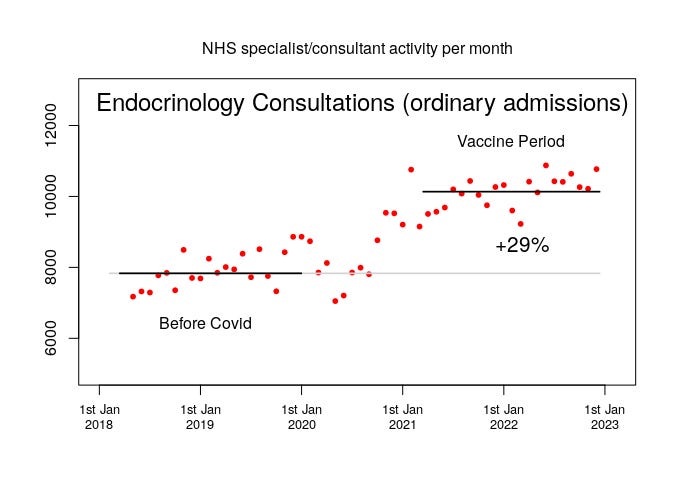
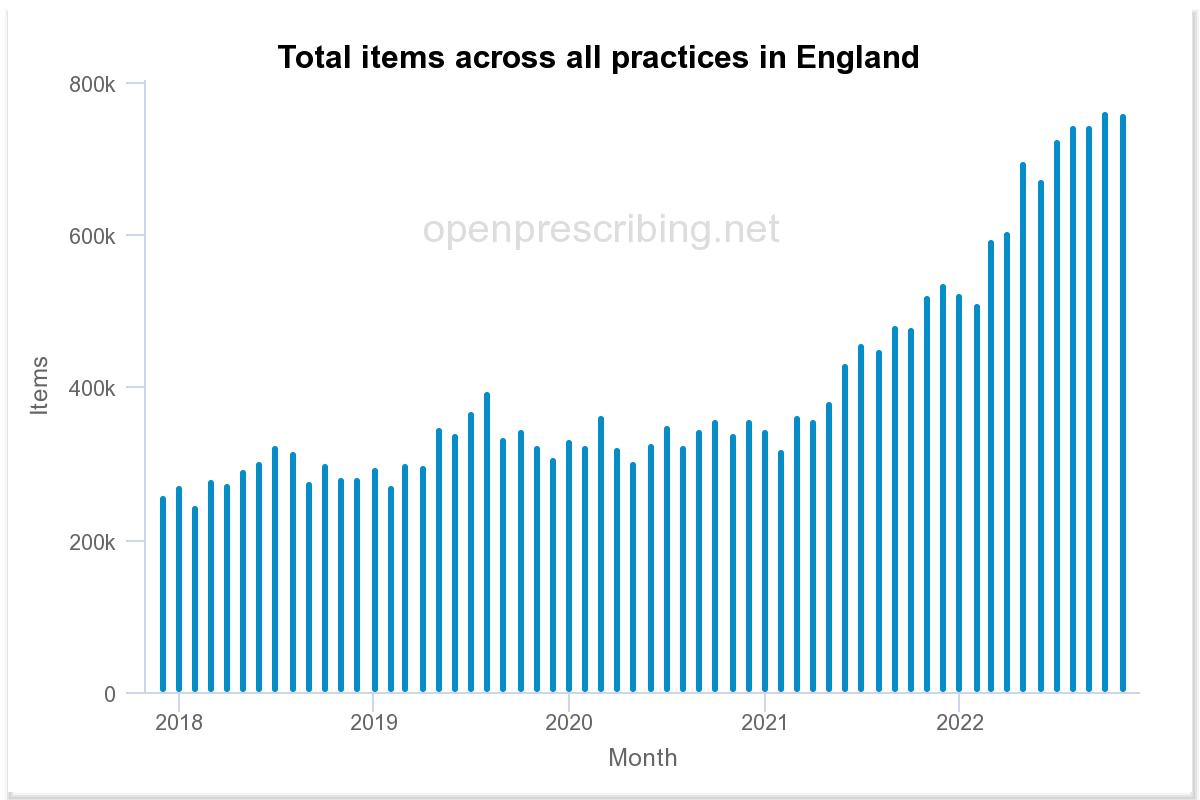
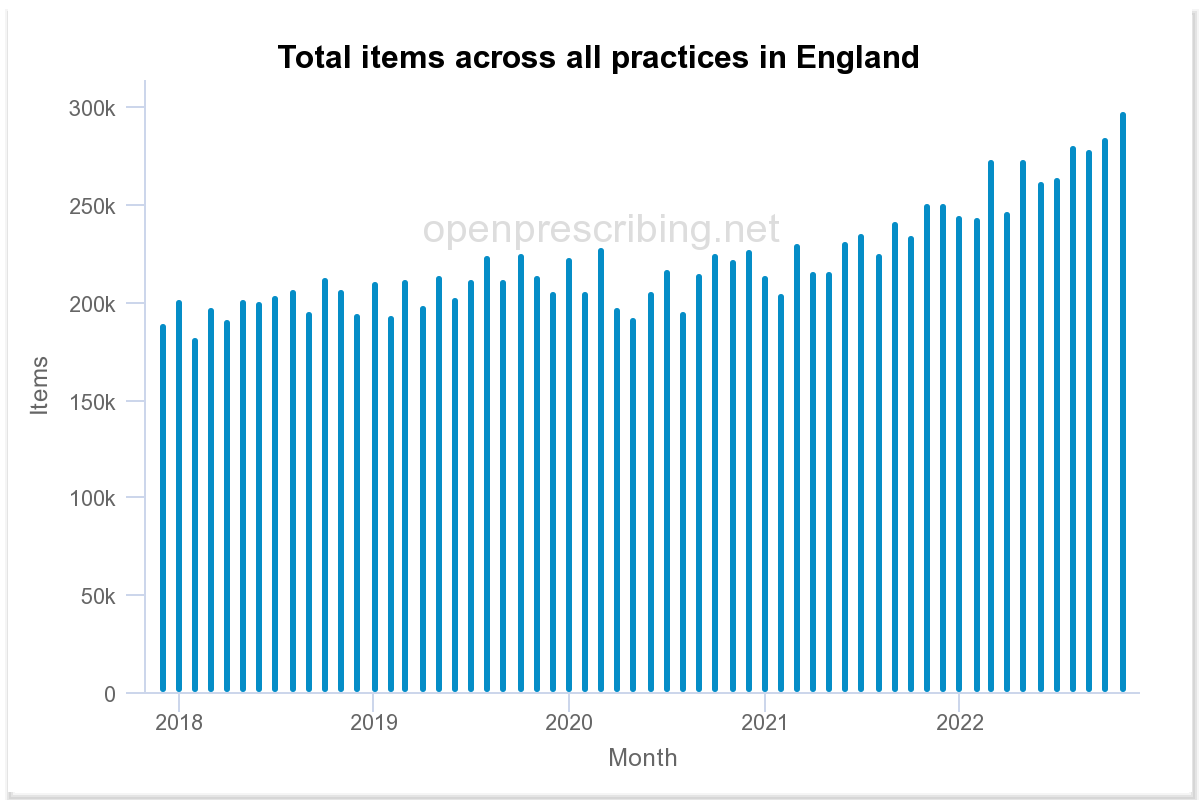
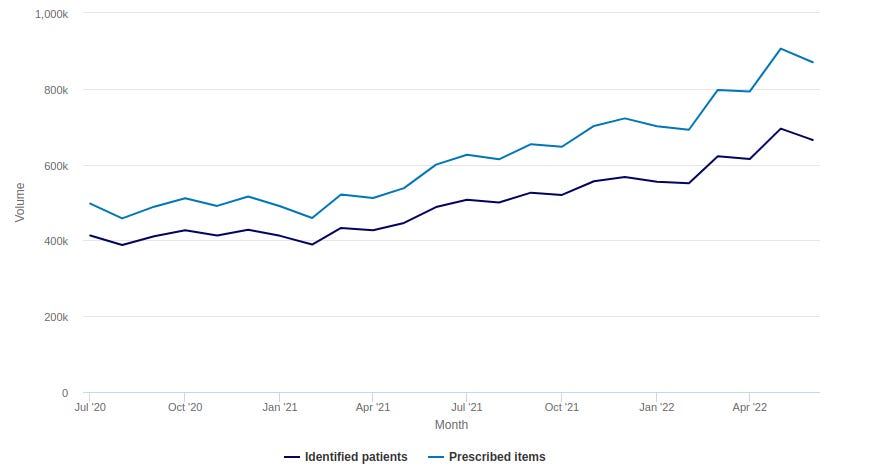
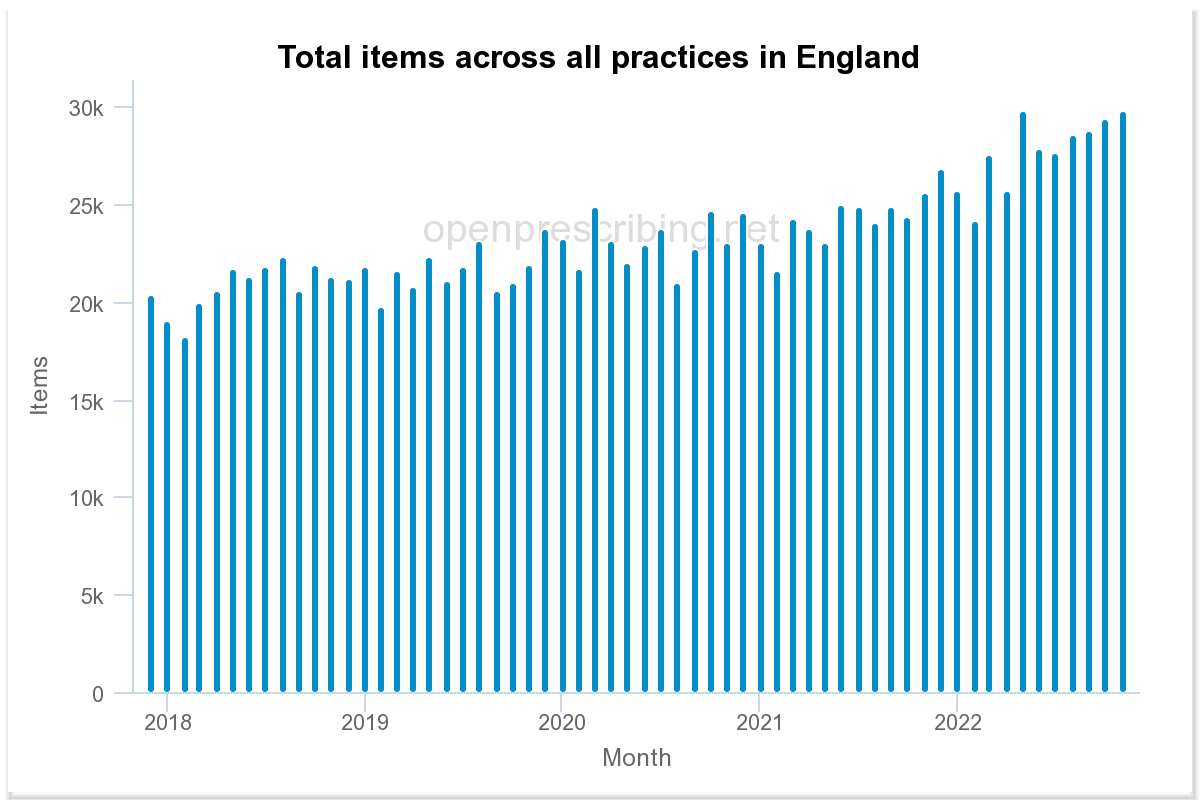
Much as I’d like to blame the vaccines for everything, I think this may be attributable to the Davina McCall effect! That and the fact that once some women find out about something they tell everyone around them!
We should now consider the NHS as terrorists, the killing arm of the WHO terrorist organization.
More here; https://wakeuppeople.substack.com/p/the-nhs-now-means-national-homicide